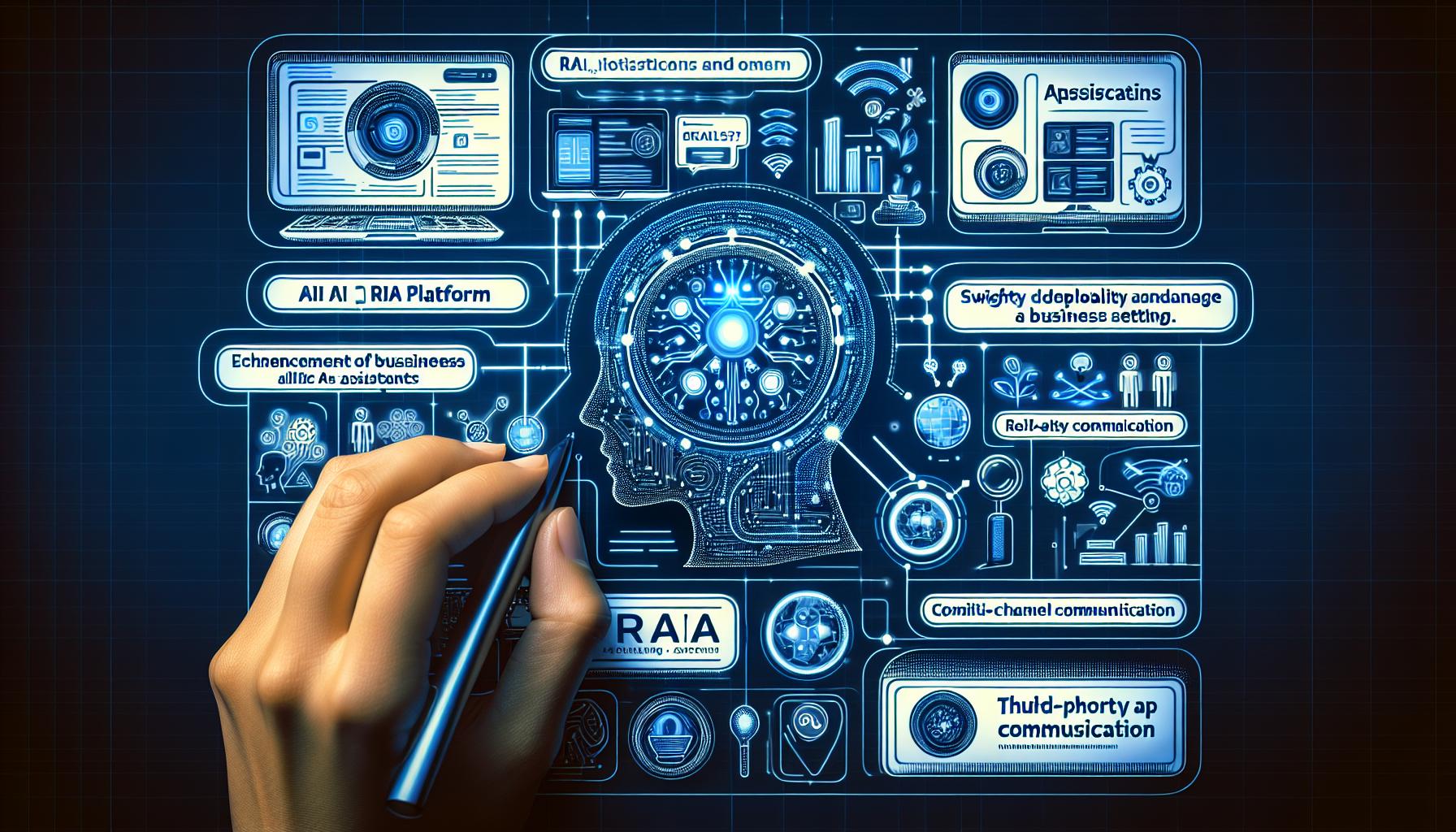Understanding the Agent Ops Evaluation Framework (AOEF) and the Role of RAIA in AI Deployment

Introduction to AOEF
In the rapidly evolving world of artificial intelligence, deploying and managing AI agents efficiently is crucial for businesses. Everymans.ai has developed the Agent Ops Evaluation Framework (AOEF) to establish industry best practices for AI agent operations. This comprehensive framework evaluates AI agents across various dimensions, ensuring that businesses can deploy these agents effectively and securely.
Key Components of the AOEF
The AOEF is structured around several key categories, each focusing on critical aspects of AI agent operations:
Deployment and Scalability
This ensures that AI agents can be scaled automatically to support business growth without the need for manual intervention. By distributing deployment across multiple servers or data centers, the framework enhances redundancy and reduces latency.
Monitoring and Observability
Real-time dashboards and performance logs are crucial for monitoring AI agents. These tools provide essential insights for optimization and troubleshooting, allowing businesses to maintain efficient operations.
Reliability and Failure Management
The framework includes automatic failure detection and recovery mechanisms to ensure mission-critical operations run smoothly. Regular health checks help identify potential issues early, maintaining high reliability.
Security and Compliance
AOEF implements robust security measures, including encryption and authentication, to ensure secure operations. Compliance tools help align AI agent activities with industry regulations, particularly in sensitive sectors like finance and healthcare.
Collaboration and Version Control
With role-based access, versioning, and shared workspaces, the framework supports effective teamwork. Detailed audit trails enhance accountability and compliance.
Integration and Extensibility
AOEF offers APIs and plugins for seamless integration with enterprise systems. Its modular architecture allows businesses to customize and add proprietary tools as needed.
Functionality and Customization
Advanced function calling enables AI agents to handle complex tasks. Businesses can develop and manage custom functions tailored to specific needs.
User Experience and Feedback
By collecting and integrating user feedback, AOEF ensures continuous improvement of agent operations based on direct user interactions.
Resource Management
The framework provides advanced control over computational resources, optimizing resource allocation to reduce costs and enhance performance.
Analytics and Key Performance Indicators (KPIs)
Customizable KPIs align agent performance with business objectives, tracking task completion, user engagement, and error metrics for detailed evaluations.
How RAIA Enhances AOEF Implementation
RAIA (Real-time AI Assistant) plays a pivotal role in fulfilling the AOEF framework's requirements by:
- Enhancing Scalability: RAIA's adaptive algorithms enable seamless scaling of AI agents, ensuring efficient handling of increased workloads without manual intervention.
- Boosting Monitoring Capabilities: With real-time analytics and performance tracking, RAIA enhances monitoring and observability, providing deep insights necessary for optimization and troubleshooting.
- Ensuring Reliability: RAIA's robust architecture supports automatic failure detection and recovery, maintaining high reliability and operational continuity for mission-critical tasks.
- Strengthening Security: By integrating advanced encryption and authentication protocols, RAIA ensures that AI operations comply with stringent security and industry regulations.
- Facilitating Integration: RAIA's flexible APIs and modular design support seamless integration with existing enterprise systems, enhancing extensibility and customization.
Importance of AOEF for AI Agent Systems
The AOEF framework emphasizes several core values:
- Reliability: Ensures continuous operation with automated recovery tools.
- Scalability: Maintains seamless performance under varying workloads.
- Security: Upholds robust compliance to protect data and meet industry standards.
- Customization: Offers flexibility to tailor AI agent behavior and performance to specific organizational needs.
- Collaboration: Facilitates efficient team management through version control and shared workspaces.
For businesses aiming to deploy and manage AI agents effectively, the AOEF, complemented by RAIA, serves as a vital guide. It balances functionality, security, performance, and customization, enabling organizations to harness the full potential of AI technologies.
Conclusion
The AOEF framework, enhanced by RAIA, offers a robust structure for deploying and managing AI agents. As businesses continue to integrate AI into their operations, frameworks like AOEF become indispensable in ensuring that AI systems are scalable, reliable, and secure. With RAIA's capabilities, businesses can further optimize their AI deployments, ensuring they meet industry standards and achieve their strategic objectives. As AI technology evolves, the collaboration between frameworks like AOEF and tools like RAIA will be crucial in navigating the complexities of AI deployment.
FAQs
What is the Agent Ops Evaluation Framework (AOEF)?
The AOEF is a framework developed by Everymans.ai to establish best practices for AI agent operations, focusing on scalability, reliability, security, and customization.
How does RAIA support AOEF?
RAIA enhances AOEF implementation by providing tools for scalability, monitoring, reliability, security, and integration, ensuring efficient AI operations.
Why is scalability important in AI agent deployment?
Scalability ensures that AI agents can handle increased workloads efficiently, supporting business growth without manual intervention.
What role does security play in AOEF?
Security is crucial in AOEF to protect data and ensure compliance with industry regulations, particularly in sensitive sectors like finance and healthcare.
How can businesses benefit from AOEF and RAIA?
Businesses can deploy AI agents more effectively, ensuring they are scalable, reliable, secure, and customized to meet specific needs, ultimately enhancing operational efficiency.




